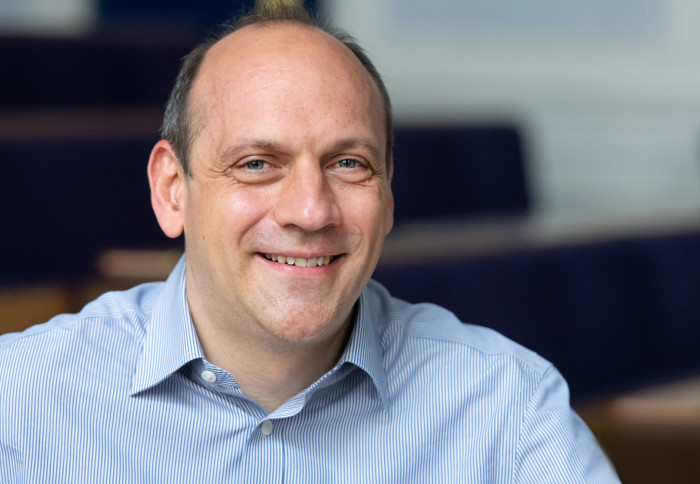Professor David Dye awarded 2022 Acta Materialia Silver Medal

Professor David Dye has been awarded the 2022 Acta Materialia Silver Medal by Acta Materialia, a peer-reviewed scientific journal.
The Acta Materialia Silver Medal is awarded each year. It intends to honour and recognise scientific contributions and leadership from academic, industry and public sector leaders in the midst of their careers.
During the 2022 TMS Spring Meeting and Exhibition in Anaheim, California, Professor Dye will receive his Silver Medal on 27 February - 3 March 2022. The Silver Medal Award consists of a silver medal, an inscribed certificate, and an honorarium of five thousand US dollars.
Internationally recognised research
The 2022 Acta Materialia Silver Medal celebrates the career of Professor Dye in Materials Science. Professor Dye is a Professor of Metallurgy in the Department of Materials, where he joined in 2003.
I’m really pleased to receive this award, which recognises the work of so many colleagues and students over the years. Professor David Dye
He works predominantly on the micromechanics, microstructure and alloy design of titanium alloys and nickel and cobalt/nickel superalloys for jet engines. In addition, he has longstanding interests in nuclear reactor zirconium and primary circuit materials, in Nickel-Titanium elastocalorics for heat pumps and actuators and in medium-manganese auto body Twinning-induced plasticity (TWIP) steels.
Professor Dye is internationally recognised for his work on dwell fatigue in titanium alloys and the relationship between alloy processing, microstructure and in-service performance, and the resolution of safety-related concerns in jet engine titanium.
He has received several awards, including the 2002 and 2005 ASM Grossman Award, the 2005 IOM3 Grunfeld Medal, 2010 IOM3 Harvey Flower Titanium prize, 2014 Rolls-Royce Defence Aerospace award 2017 IOM3 Cook/Ablett and 2018 TMS EPD Division Science awards. In addition, Professor Dye has been active in mentoring early-stage researchers. Seven of his previous students and postdoctoral researchers have taken up faculty positions, and 33 PhDs completed, most of whom now work in the aerospace industry and the speciality metals supply chain.
Professor Dye said: “I’m really pleased to receive this award, which recognises the work of so many colleagues and students over the years. I pay tribute to their dedication, hard work and talents and thank them for all their kindness and ingenuity.
It also showcases the insights and developments that are still possible in conventional materials, and the importance of these for air safety and to the Aerospace industry in the UK, EU and around the world, and more generally to the energy transition in auto, nuclear and the electrification of heating and cooling."
Projects on the horizon
Professor Dye continues to work on jet engine titanium, on new alloys to reduce weight and cost in jet engines, and on understanding the link between processing, microstructure and fatigue performance in fan discs to improve reliability, safety - and to enable new product developments with Rolls-Royce.
He is also working on the industrialisation of low cost, crash-resistant medium-Mn auto body steels and on new conventionally processed Co./Ni superalloys for the hot section of jet engines and the next generation of heat pumps using elastocaloric materials.
This article was adapted from a press release from Acta Materialia.
Article text (excluding photos or graphics) © Imperial College London.
Photos and graphics subject to third party copyright used with permission or © Imperial College London.
Reporter
Kayleigh Brewer
Department of Materials